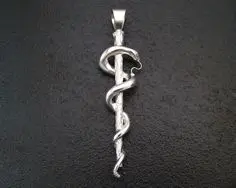I have some previous experience fighting with the mass-murderers…I mean…insurance companies from the role of a clinic assistant, but I want to hear perspectives from physicians or other providers about your approaches to dealing with them.
I plan on being very familiar with the ICD-10’s and CPT’s and how to match those up as advantageously as possible, but I know that won’t be enough on it’s own. Do you think having someone in the office with medical training whose job it is to deal with insurance companies as their primary/only job is necessary?
“The Adjuster” has definitely captured the collective consciousness and kicked off some serious discussions, but I’m afraid that the mainstream media, corporations, and corporate-owned politicians are going to stamp this out or defy the will of the people so vehemently that it won’t matter what we do short of full-on revolution.


Depending on the size of the operation, many clinics already have a person. But they aren’t usually interested in getting the insurer to approve a procedure/medication/etc. Usually they just handle filling the paperwork to get them to pay what they’re already going to.
The insurers (intentionally?) make it difficult for everybody involved, not just the patient.
As for your plan, it gets really difficult in reality. Sure, there are just a handful of insurance companies. But many large employers have their custom plan within that company, with different criteria for what gets covered. At best, there are some general guidelines you can follow when you get denied.
I just saw a post about requesting things like the name, license number, and specialty of the doctor that made the determination to deny a procedure. But these are only half measures, at best.
Depending on the nature of your clinic, it might be more helpful to have travel brochures for countries that are good for medical tourism.
I do recall having done the prior authorization for a medically necessary breast reduction that was not covered by the patient’s plan. Apparently, she worked for a religious organization and they opted out of coverage for ALL breast surgeries that were not mastectomies for breast cancer. So, yes, I am unfortunately familiar with the carve-out plans.